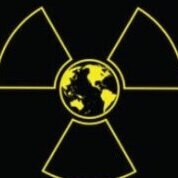Search the Community
Showing results for tags 'environment'.
-
Lately we constantly see in the media, internet portals, on social networks ... the term “climate crisis” and its relationship with “climate change”. Their arrival and employment in a massive way has a reason that we will explain to you today. But first, let's look at both concepts and what meaning each of them has in order to see why the majority use of the term “climate crisis” is taking place. The term "climate change" refers to the variation in the Earth's climate. This variation is due to natural causes and human action. The consequences derived from this are manifesting themselves in the increase in temperature, the rise in sea level, which can cause cases of coastal flooding. There are more and more cases of climatic migrations that thus increase the displaced population. According to the 2018 Assessment Report of the Intergovernmental Panel on Climate Change (IPCC), the global temperature is increasing at a rate of 0.2ºC per decade. From 1880 to 2017, the average annual temperature has increased 1 ºC. This shows that the consequences of climate change are real. When we speak of "climate crisis" we refer to the magnitude or consequences of human activity, the increasingly evident consequences of climate change. The term "crisis" by itself refers to a serious situation that endangers the development of something. In this sense, and related to the “climate” concept, we can understand it as the current situation that the planet is experiencing and that is endangering the development of life on it. Both expressions are usually used as synonyms and, although it is not entirely incorrect when used in informative terms, it is not 100% correct, especially on a scientific level. We see why. Climate change is the phenomenon or phenomena of changes that are producing by human action. However, modifying "change" by "crisis" gives an idea of the emergency or critical state in which the planet is due to climate change. In this sense, the introduction of the term "crisis" at the social level has a more direct effect on raising awareness among the population. As we know, a change can be for the better or for the worse. In this case, climate change and the effects derived from it are usually negative. Therefore, linking the concept of "climate crisis" to "climate change", opting for the first instead of the second, shows the need to act against the negative impact that, in a majority way, human action exerts on the planet. The media, journalists, social networks and personalities are adopting this term in their daily vocabulary with the aim of making a call to action of the magnitude of the problem in addition to highlighting the magnitude of the moment. Something that both The Guardian and Fundeu have already done, incorporating the term “climate crisis” in their style books. We believe it is necessary to use this term as a call to action to combat climate change. We must be aware of where the planet is, we do not have a planet B. The recycling of WEEE is a fundamental part, since by recycling our waste electrical and electronic equipment, we are preventing the harmful elements that this type of Appliances contain inside can contaminate water, soil or atmosphere. Some appliances, such as refrigerators, contain substances that release large amounts of CO2 into the atmosphere if they are not managed properly. The responsibility for their correct management rests with producers and companies, but we, as users, are also responsible for this cycle because, once these devices are unusable in our homes or jobs, we must deposit them in the appropriate places for it. Take action, recycle and connect with Nature.

